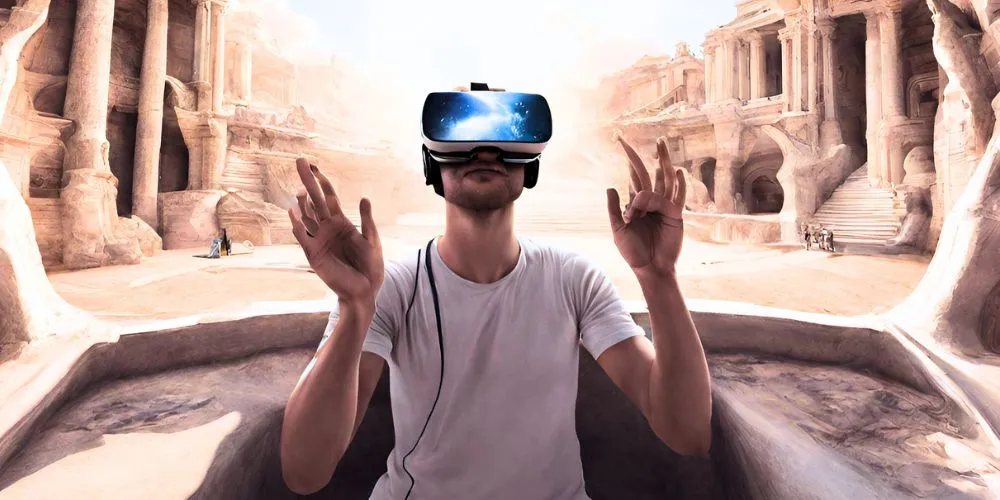Key Points:
- Virtual reality tourism offers an immersive and interactive way to explore destinations worldwide from the comfort of home.
- It provides accessibility to individuals who may not have the means or ability to travel, breaking down barriers and opening up the world.
- Beyond sightseeing, virtual reality tourism allows for cultural immersion, education, and engagement with local communities.
- Virtual reality technology enhances vacation planning, allowing travelers to preview destinations and experiences before booking.
In a world where travel restrictions and concerns about sustainability are increasingly prominent, virtual reality (VR) technology is revolutionizing the tourism industry. Virtual reality tourism allows individuals to explore destinations around the globe from the comfort of their homes, offering an immersive and interactive experience that feels remarkably close to the real thing.
With virtual reality tourism, the possibilities are endless; the only limit is your imagination. One of the key advantages is its accessibility. People who may not have the means or ability to travel can now visit destinations they’ve only dreamed of, breaking down barriers and opening up the world to everyone. Additionally, virtual reality tourism offers a sustainable alternative to traditional travel, reducing the carbon footprint associated with air travel and minimizing the environmental impact on popular tourist destinations.
But virtual reality tourism isn’t just about sightseeing; it’s also about cultural immersion and education. Through VR technology, users can engage with local communities, participate in cultural activities, and learn about the history and heritage of different regions. From virtual museum tours to interactive cooking classes with local chefs, virtual reality tourism offers a rich and diverse array of experiences beyond mere sightseeing.
Moreover, virtual reality tourism has the potential to revolutionize the way we plan and book our vacations. Instead of relying on static images and reviews, travelers can now explore hotels, resorts, and attractions in virtual reality before making any commitments. This immersive preview allows travelers to make more informed decisions and ensures that their expectations align with the reality of their chosen destination.
As virtual reality solutions evolve and become more sophisticated, the possibilities for virtual reality tourism are virtually limitless. From virtual reality theme parks to virtual reality cruises, the future of tourism is poised to be an exciting and immersive adventure for travelers worldwide.





